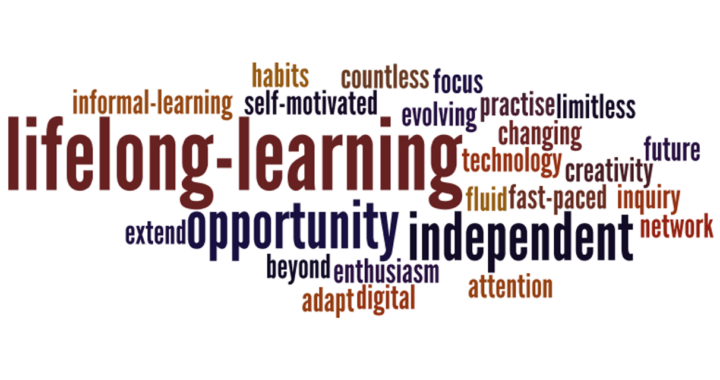The Significance of a Degree: Navigating Education, Career, and Personal Growth

Introduction
Obtaining a degree has long been considered a significant milestone in one’s educational journey, career development, and personal growth. Whether pursued in traditional institutions or through online platforms, degrees hold the promise of knowledge acquisition, skill enhancement, and expanded opportunities. In this comprehensive exploration, we delve into the multifaceted nature of degrees, their importance in various contexts, the evolving landscape of education, and the potential impact of a degree on individual lives and society.
The Purpose and Value of a Degree
A degree represents the culmination of structured learning in a specific field, typically requiring a certain level of coursework, examinations, and project completion. Beyond the mere acquisition of knowledge, a degree holds several important purposes and values:
- Knowledge Acquisition: Degrees provide a comprehensive understanding of a subject area, fostering critical thinking, problem-solving skills, and expertise.
- Career Opportunities: Many professions require specific degrees as a prerequisite for entry. A degree can open doors to a wide range of career paths and job prospects.
- Skill Development: Degree programs often include practical training and hands-on experiences, honing skills relevant to the chosen field.
- Personal Growth: Pursuing a degree can lead to personal development, increased confidence, and a broader worldview.
- Credibility and Recognition: Degrees offer a formal recognition of one’s expertise and commitment to a particular field, enhancing credibility in professional circles.
Traditional vs. Modern Approaches to Degrees
- Traditional Institutions: Universities and colleges have long been the traditional sources of degrees, offering structured programs with in-person learning experiences.
- Online Education: The rise of technology has led to the emergence of online degree programs, providing flexible and accessible education to a global audience.
- Blended Learning: Many institutions now offer blended programs, combining online coursework with in-person components, catering to diverse learning styles.
Evolving Landscape of Degrees
- Specialized Degrees: The demand for specialized knowledge has led to the proliferation of degrees tailored to niche industries and emerging fields.
- Interdisciplinary Studies: Degrees that span multiple disciplines are gaining popularity, reflecting the interconnected nature of today’s world.
- Lifelong Learning: The concept of continuous education is becoming more prevalent, with individuals pursuing degrees and certifications throughout their careers.
- Recognition of Prior Learning: Some institutions offer credits for prior work experience or relevant certifications, accelerating the degree completion process.
The Impact of a Degree
- Career Advancement: A degree often serves as a stepping stone for career growth, leading to promotions, salary increases, and expanded responsibilities.
- Professional Networks: Educational institutions provide opportunities to connect with peers, professors, and industry professionals, building valuable networks.
- Innovation and Research: Advanced degrees contribute to the expansion of knowledge and breakthroughs in scientific research and technological advancements.
- Social Mobility: Degrees can play a crucial role in upward social mobility, allowing individuals to transcend socioeconomic barriers.
- Civic Engagement: An educated populace contributes to informed decision-making, active citizenship, and a more resilient society.
Challenges and Considerations
- Financial Investment: Pursuing a degree often comes with financial costs, and individuals should carefully consider the potential return on investment.
- Changing Job Market: The job market is evolving, and individuals should assess whether a degree aligns with current and future industry trends.
- Alternative Pathways: Degrees are not the only route to success; alternative pathways such as vocational training and certifications can also lead to fulfilling careers.
- Lifelong Learning: As industries evolve, individuals may need to engage in continuous education and upskilling to remain competitive.
Conclusion
Degrees represent more than just pieces of paper; they embody the pursuit of knowledge, personal growth, and professional development. Whether obtained through traditional institutions or modern online platforms, a degree can serve as a catalyst for transformative change. In an ever-changing world, the importance of a degree extends beyond the classroom, influencing career trajectories, innovation, and societal progress. As individuals and societies continue to navigate the complex landscape of education and career, recognizing the significance of a degree and embracing a lifelong learning mindset can lead to a brighter, more enriched future for all.




 Lifelong Learning: Nurturing Curiosity and Success Across a Lifetime
Lifelong Learning: Nurturing Curiosity and Success Across a Lifetime  Unveiling Dr. Arora: A Unique Blend of Comedy and Drama on Watcho
Unveiling Dr. Arora: A Unique Blend of Comedy and Drama on Watcho  How to Download Instagram Videos and Photos Easily
How to Download Instagram Videos and Photos Easily  The Venture Builders Business Model for Innovation and Founder Empowerment
The Venture Builders Business Model for Innovation and Founder Empowerment  Call Break Multiplayer Game: Important Information
Call Break Multiplayer Game: Important Information 